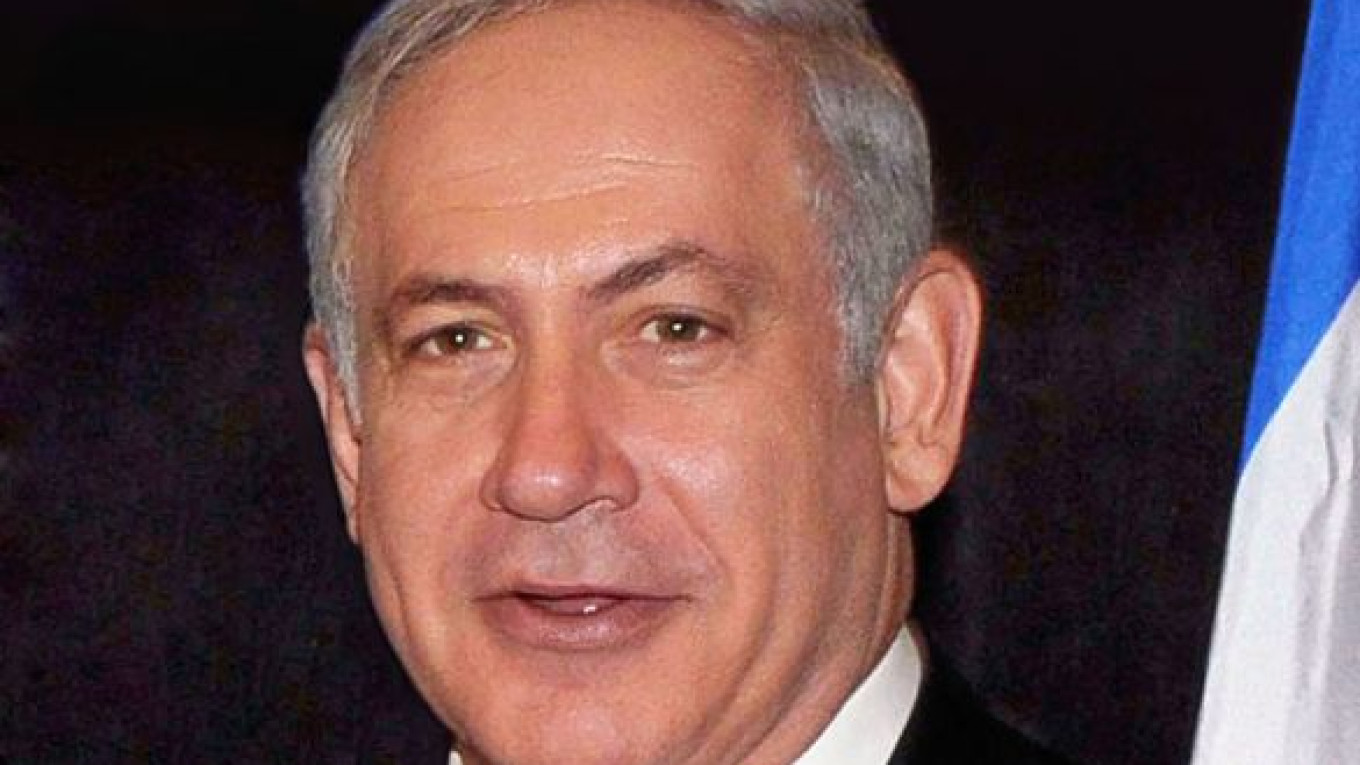Israeli Prime Minister Benjamin Netanyahu is expected to urge President Vladimir Putin to nix planned deliveries of sophisticated ground-to-air missile systems to the government of war-torn Syria during a meeting in Russia on .
If deployed, the S-300 systems would make it more difficult for outside powers, including Israel — which was reportedly behind two airstrikes inside Syria earlier this month — to intervene in the two-year civil war, including on behalf of rebels fighting the government of President Bashar Assad.
Russia has pledged to go ahead with the sales, which were made in 2010, arguing that the missile systems are defensive and that their delivery does not violate international law. Moscow does not plan to sell additional S-300s to Syria, Foreign Minister Sergei Lavrov Friday.
Russia's stance has elicited sharp criticism in the West and particularly in Israel, which recently warned the United States of an "imminent" Russian deal to sell the S-300 system, capable of intercepting both manned aircraft and guided missiles, the Wall Street Journal reported last week.
On Monday, Israeli Tourism Minister Uzi Landau publicly accused Russia, by virtue of its arms supplies, of "promoting instability in the Middle East."
"Anyone who provides weaponry to terror organizations is siding with terror," he said, The Associated Press reported.
A senior Israeli official told Haaretz that Netanyahu would ask Putin not to deliver the S-300s, repeating an appeal he made last week during a telephone conversation with the Russian leader.
Israeli warplanes twice attacked arms convoys within Syria bound for the Lebanese militant group Hezbollah earlier this month, Western media reported, citing foreign senior military and intelligence sources. The Syrian government blamed Israel for the strikes, and Assad subsequently said Syria would follow Hezbollah's model of "resistance" to Israel and "give Hezbollah everything."
Theodore Karasik, an expert at the Dubai-based INEGMA think tank, said by e-mail that while Netanyahu and Putin were likely to focus on arms sales and Syria's future, "There is a great urgency for Tel Aviv and Moscow to see eye-to-eye now that Israel feels it can attack Syrian targets at will."
Another possible topic of conversation is allegations spearheaded by Israel's senior military intelligence analyst that forces loyal to the Syrian government have used chemical weapons, an issue Russia has accused the West of politicizing to pave the way for military intervention.
After U.S. Secretary of State John Kerry and British Prime Minister David Cameron, Netanyahu is the third major Western leader to visit Putin for Syria talks in the past week amid what appears to be a ramped-up diplomatic effort to end a war that has killed more than 70,000, forced millions from their homes, and threatened to spread beyond Syria's borders.
The United States has long sought Russia's support in ousting Assad, but Moscow, which has large defense contracts with Damascus and bristles at the notion of foreign governments intervening in what it calls a country's sovereign matters, has shielded him from UN Security Council sanctions.
But Russia and the United States have appeared to move closer on Syria recently.
Kerry and Lavrov, his Russian counterpart, last week hinted at a growing bilateral consensus and announced that the United States and Russia would try to arrange an international peace conference.
The opposition Syrian National Coalition, which is backed by the United States and other Western powers, announced on Monday that its members would meet later this month to discuss whether to take part in the proposed conference, Al Arabiya .
There was plenty of fodder for pessimists, however, including disagreements over who should represent the fractured rebel groups. A senior Kremlin official who attended talks between Cameron and Putin Reuters that it would be impossible to hold a peace conference by the month's end, as hoped.
Contact the author at [email protected]
Related articles:
A Message from The Moscow Times:
Dear readers,
We are facing unprecedented challenges. Russia's Prosecutor General's Office has designated The Moscow Times as an "undesirable" organization, criminalizing our work and putting our staff at risk of prosecution. This follows our earlier unjust labeling as a "foreign agent."
These actions are direct attempts to silence independent journalism in Russia. The authorities claim our work "discredits the decisions of the Russian leadership." We see things differently: we strive to provide accurate, unbiased reporting on Russia.
We, the journalists of The Moscow Times, refuse to be silenced. But to continue our work, we need your help.
Your support, no matter how small, makes a world of difference. If you can, please support us monthly starting from just $2. It's quick to set up, and every contribution makes a significant impact.
By supporting The Moscow Times, you're defending open, independent journalism in the face of repression. Thank you for standing with us.
Remind me later.


